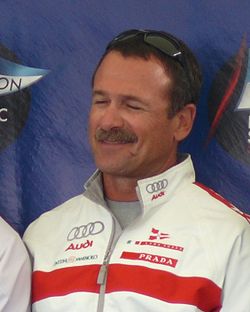| 1988 Summer Olympics medals | |
|---|---|
 Kristin Otto of East Germany won the most gold medals at the 1988 Summer Olympics, winning six gold medals in women's swimming. | |
| Location | Seoul, |
| Highlights | |
| Most gold medals | |
| Most total medals | |
| Medalling NOCs | 52 |
| Part of a series on |
| 1988 Summer Olympics |
|---|
|
The 1988 Summer Olympics, officially known as the Games of the XXIV Olympiad, were an international multi-sport event held in Seoul, South Korea, from 17 September to 2 October 1988. A total of 8,397 athletes representing 159 National Olympic Committees (NOCs) participated in 237 events in 23 sports across 31 different disciplines. [1] [2] [3] Table tennis was introduced to the Summer Olympic Games program at these games, [4] while tennis was reintroduced following its removal after the 1924 Summer Olympics in Paris, France. [5]
Contents
Overall, athletes representing 52 NOCs received at least one medal, and 31 NOCs won at least one gold medal. The Soviet Union won the most gold medals and the most overall medals, with 55 and 132 respectively. [6] Suriname's team won their first Olympic gold medal, which was also their first Olympic medal of any color. [7] The other teams that earned their first Olympic medal were Costa Rica, [8] Djibouti, [9] Indonesia, [10] the Netherlands Antilles, [11] Senegal, [12] and the United States Virgin Islands. [13]
Swimmer Kristin Otto of East Germany won the most gold medals for an individual at the games, with six gold medals. [14] Fellow swimmer Matt Biondi of the United States won the most overall medals, winning seven medals with five golds, one silver, and one bronze, tying Mark Spitz's record for most medals won in a single games. [15]

